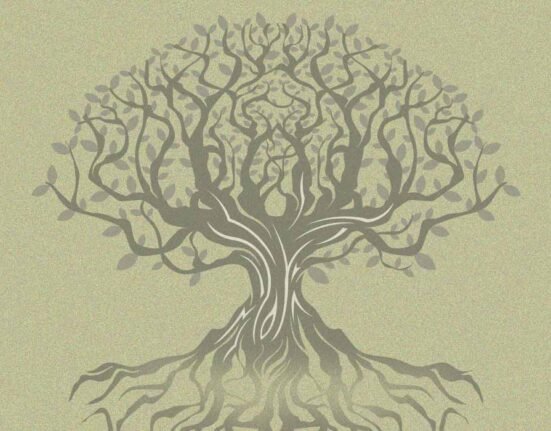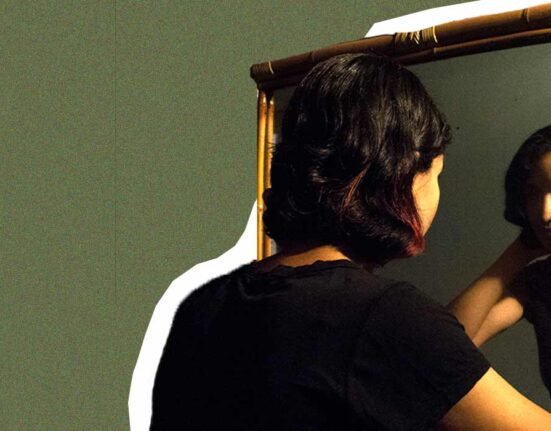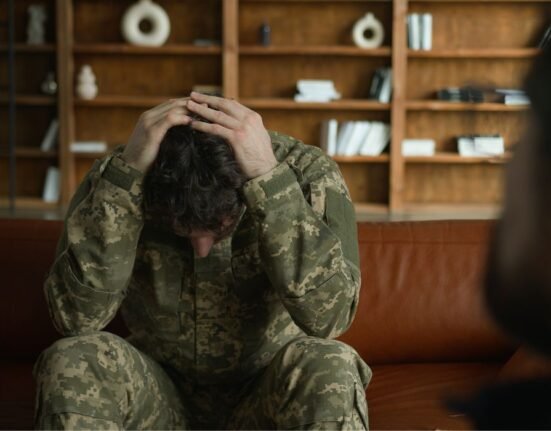Mental Health, reading these two words itself creates lots of confusion, doubts, questions and fear in one’s heart and mind. It’s because Indian society has not been much exposed to the positive side of mental health, or can rather say it has never been talked about in Indian families.
Ever wondered why mental health holds so much importance? It’s always said, you can’t give someone something until you yourself don’t own it. Such as; you can’t lend money to someone unless you earn it, and you can’t share knowledge unless you have gained it. Similarly, you can’t share happiness or calmness, unless you don’t feel it. Often people who are mentally healthy tend to create a healthy environment within themselves as well as with people around them.
Imagine yourself being surrounded by people who often express sadness, and unhealthy negative thoughts whenever you meet them be it home, office, party etc. Would you approach them in future? No Right!!! If we ourselves do not wish to be around such people, in a similar manner people around us will be reacting in the same manner. If we do not create a healthy mental health environment within and around us, no other person will willingly proceed with us.
Definitely sometimes experiencing unhealthy mental health is absolutely normal as we are not robots and machines. We have a beautiful heart and powerful minds and we are gifted with, our emotions and thoughts and therefore sometimes it does become difficult to control them. And since we experience and express these emotions, it makes us Human. Our dear and near ones who understand us, may or may not be much affected by our unhealthy mental health pattern, but we being unique individuals need to take care of our mental well-being. Our routine comprises many known and unknown people who influence us directly or indirectly, positive or negative and hence this is the situation where we need to protect our state of mind by using the shield for our thoughts, behaviour and actions.
In our life, half of the stability comes from our mental health. As rightly said, “Our emotional stability affects our physical health” such as, when a person faces anxiety or stress, there are high chance of them facing high blood pressure, muscle pain, asthma and so on. All of us at some point in our life, have come across a situation where crying becomes the only way to release the pressure and experience a peaceful sleep.

What leads to such an outcome? We outburst our emotional factor in such a way that our body gets tired and drained out as well and we feel light after expressing our inner emotions through which we often tend to have a sound sleep. We often hear doctors saying regarding their patients that medicine alone won’t work, it’s necessary for the person to be happy and stable. Why? Because 50% of the recovery depends on the individual’s mental health as well as their surroundings.
Mental health, in real terms, is defined as a healthy state of mind just like a healthy body that helps individuals to face difficulties in life and increase their resistance power to deal with different situations. We often maintain or sustain our daily routine by uploading photos on Snapchat, Instagram, Facebook, etc. and keep ourselves up to date in order to get likes, comments, and followers which increases the longevity of updating oneself. Similarly, we need to take care of our mental health every single day by retaining our emotional health in the right perspective in order to increase the longevity of a cordial and harmonious life.
An individual needs to take care of mental health every day before it falls under the bracket of disorder. For example, it’s crucial to treat the early symptoms before it gets medically diagnosed just like treating anxiety with therapies before it becomes an anxiety disorder where taking medications becomes a necessity. Does anyone like consuming medicines willingly? NO! Because the mere acceptance of consuming medicine to cure a mental disorder again creates havoc in Indian society. As we often fall into the bracket of “LOG KYA SOCHENGE AUR KAHENGE?” Due to this, the condition is worsened.
However, it is equally important to understand that even if there comes a situation where consuming medicines is necessary, there is no harm in it. Wouldn’t we consume medicine if we have some allergy or physical sickness? That seems to be customary right? We didn’t fear at that time about the perspective and judgemental views of society as we know it’s for our betterment, for us to get well soon. Similarly, if the condition expects an individual to consume medicine to cope with the symptoms of a medically diagnosed disorder it is equally usual and acceptable.
Mental health can be explained in two ways: One of which talks about Psychiatric Concerns such as ADHD (attention deficit hyperactivity disorder), Autism, OCD, Schizophrenia, Depression, Personality Disorder, Eating Disorder, Trauma-related disorders, Substance abuse disorders and many more. Whereas, it’s another aspect talks about Daily life hassles such as Stress, Anxiety, Phobia, Dysfunctional thoughts, Relationship issues between partners or family members, Anger management, Domestic violence, Eldercare, and Parenting issues. Now, we often see individuals confused while deciding whom to consult – a Psychologist or a Psychiatrist.
In a very basic way, Psychologists are the professionals who help individuals with their socio-emotional-behavioural and developmental concerns with the help of different therapies suitable for different individuals. Whilst Psychiatrist is the one who, with the help of medication tries to control the symptoms of the disorder. However, depending on the situation both psychologists and psychiatrists work as a team for the betterment of the client’s stability. And if needed, Occupational therapists and special educators are also enrolled in the team to help individuals to maintain and improve the skills they need for their daily routine.
After this, there comes the next question which is ‘When to consult a mental health professional?’ It is more difficult than it seems to decide the right time. We end up taking suggestions from our friends and neighbours for our problem and they end up giving advice and suggestions which are based on their experience and why not that is the only thing we get free of cost, sometimes it does work out and that is indeed awesome, but many times, even after trying out different ways, situations don’t improve.

There comes a point, when you don’t need advice or suggestions rather, you need solutions to the problem, to the thoughts, emotions and behaviour, about how to modify and control them, about how to shift your situation from worse to better. Mental Health Professionals believe every individual is unique and that the individuals are not any kind of laboratory animal to attempt experiments on them through their personal experience. These professionals will never judge any individual by his or her past or current behaviour, they will consider the condition/behaviour to be inappropriate or to be treated and not the person i.e.:
“An Individual is not bad or wrong, it’s the behaviour/condition that has to be treated”
Therefore, there is no age bar for individuals to consult mental health professionals. They are ready to help all individuals, be it a school-going child or an elderly person. As the studies say that a person faces different emotional and developmental concerns as per his or her age criteria during their entire lifetime. And therefore, we cannot restrict the age bar as a reason for not providing help.
For example, a child as per his age may be facing problems regarding experiencing emotions, toilet training, relation with peers, competitions, confidence etc., whereas the youth as per their age may be having their concerns related to career, family, relationships, marriage, children etc. and with respect to the elderly, generic population as per their age come across concerns such as loss of a partner, feeling lonely, being dependent on others, feeling of despair vs. integrity, fear of death. Therefore, stable emotions, behaviour, functioning and adjustments are needed for a positive well-being in one’s life irrespective of his or her age.
We observe people positively approaching towards physical fitness even in their busy schedules by taking out time for the gym, exercising, and following a proper diet. Individuals often focus on staying physically fit to feel amazing and positive about themselves and why shouldn’t they? As this in turn increases the chances of being more confident, and having high self-esteem towards self and the outside world. As loving yourself from a physical outlook is important, similarly, in this hectic life, taking care of your mental health is equally needed.
We do use these high funda quotes such as,
“Expectations hurts” , “ Attachment is the best as well as worst thing in life” , “No sorry and Thank you in friendship”
and whatnot. Today’s generation, as soon as they experience some downfall starts posting such quotes on Instagram, Snapchat, Facebook, and WhatsApp. The question that arises here is, by doing all this, does it really help one’s mental health? Does it make one feel better? Or it still keeps you on the same page.
Just imagine going on a date with your partner or going for a family/friends gathering, all up to date dressed and set to go but at the same time, emotional stability never stood up as the priority. You were stressed up that day, had a fight with someone, and you were anxious for some reason. Do you think your physical look will be enough to sustain happiness and enjoyment at the party? No, right!!!
Remember, we are humans and as stated before, we are made up of a beautiful heart and a powerful mind so having an emotional breakdown is completely normal, all that matters is how do you take the situation ahead. How much do you allow the situation to affect you in the long run?
Today we almost try to copy the lifestyle of Western culture such as the way we dress, eat, and live as well as the way we think. But when it comes to consulting a mental health professional we are still lacking behind compared to other developed countries.
How about these thoughts?
We do consider the following situations as normal and acceptable such as:
• Consult a physician when someone is suffering from a fever.
• Consult a dermatologist when someone has skin concerns.
• Consulting a dentist when someone has a toothache.
Similarly, consulting a mental health professional should be considered normal and acceptable when in need.













Leave feedback about this